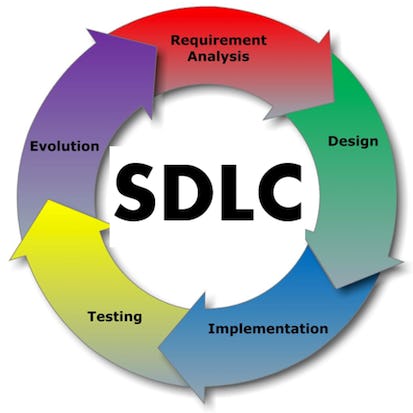- Level Foundation
- Duration 22 hours
- Course by University of Minnesota
-
Offered by

About
Software is quickly becoming integral part of human life as we see more and more automation and technical advancements. Just like we expect car to work all the time and can't afford to break or reboot unexpectedly, software industry needs to continue to learn better way to build software if it were to become integral part of human life. In this course, you will get an overview of how software teams work? What processes they use? What are some of the industry standard methodologies? What are pros and cons of each? You will learn enough to have meaningful conversation around software development processes. After completing this course, a learner will be able to 1) Apply core software engineering practices at conceptual level for a given problem. 2) Compare and contrast traditional, agile, and lean development methodologies at high level. These include Waterfall, Rational Unified Process, V model, Incremental, Spiral models and overview of agile mindset 3) Propose a methodology best suited for a given situationModules
Introduction to the course
1
Assignment
- What software development looks like
3
Videos
- Why Take This Course?
- Motivation and Course Intro
- What software development looks like
1
Readings
- Welcome to the course
Requirements
4
Assignment
- Why do we need requirements?
- Requirements vs Specification
- Non-functional Requirements
- WRSPM Quiz
5
Videos
- Why do we need requirements?
- Requirements vs Specification
- Non-functional Requirements
- WRSPM
- WRSPM Model: Real-world Example
Architecture
3
Assignment
- Software Architecture: Definition
- Software Architecture Models
- Software Architecture: Process
3
Videos
- Software Architecture: Definition
- Software Architecture: Models
- Software Architecture: Process
Quiz: Requirements and Architecture
1
Assignment
- Requirements and Architecture
Design
4
Assignment
- Software Design: Introduction
- Software Design: Modularity
- Software Design: Coupling
- Software Design: Cohesion
4
Videos
- Software Design: Introduction
- Software Design: Modularity
- Software Design: Coupling
- Software Design: Cohesion
Implementation
4
Assignment
- Implementation
- Deployment
- Deployment: Rollback
- Deployment: Cutover Strategies
4
Videos
- Implementation
- Deployment
- Deployment: Rollback
- Deployment: Cutover Strategies
Testing and Verification
1
Assignment
- Software Testing: Introduction
4
Videos
- Software Testing: Introduction
- Software Testing: Definitions
- Software Testing: Strategies
- Software Testing: Perspectives
Quiz: Design, Implementation, and Testing
1
Assignment
- Design, Implementation, and Testing
Waterfall Models
1
Assignment
- Waterfall methods
4
Videos
- Software Development Models
- Waterfall Model
- V-Model
- Sashimi Model
Incremental Models
1
Assignment
- Waterfall and Incremental Software Development Models
1
Videos
- Incremental Models
Iterative Models
1
Assignment
- Unified and Spiral Processes
2
Videos
- Unified Process and its Variants
- Spiral Model
Applying traditional software development models
1
Assignment
- Traditional Software Development Models
1
Peer Review
- Project Scenario 1
2
Videos
- Phase Gates / Stage Gates
- Applying Software Development Models
Agile Fundamentals
1
Assignment
- Agile Mindset
2
Videos
- Why Agile?
- Agile Manifesto and Principles
2
Readings
- Watch Agile Manifesto Video
- Video - Agile Manifesto Explained
Agile Frameworks
1
Assignment
- Agile Frameworks and models
5
Videos
- Agile Frameworks
- Scrum
- Kanban
- Agile and Lean Summary
- Lean Startup
Model Comparisons and applicability
1
Videos
- Model Selection: When to use which model?
Course Wrap up
1
Assignment
- Agile & Lean Software Development
1
Peer Review
- Project Scenario 2
1
Videos
- What Next?
Auto Summary
Explore the integral role of software in modern life with the "Software Development Processes and Methodologies" course. Guided by expert instructors from Coursera, this foundational course covers industry-standard processes and methodologies, including Waterfall, Agile, and Lean. Over 1320 minutes, learners will gain the skills to apply core software engineering practices, compare methodologies, and propose suitable approaches for various situations. Ideal for IT and Computer Science enthusiasts, this course offers a comprehensive understanding tailored for meaningful discussions in software development. Available through a Starter subscription.

Praveen Mittal

Kevin Wendt

